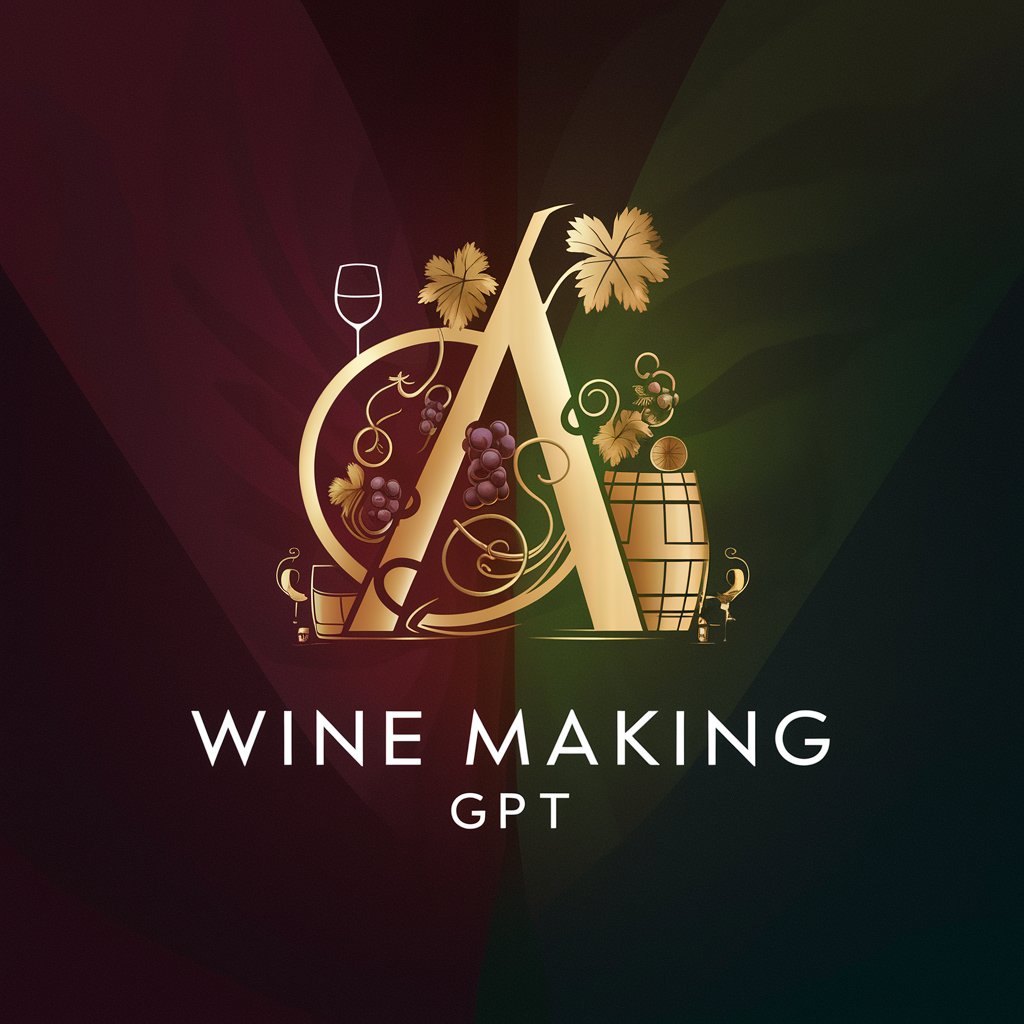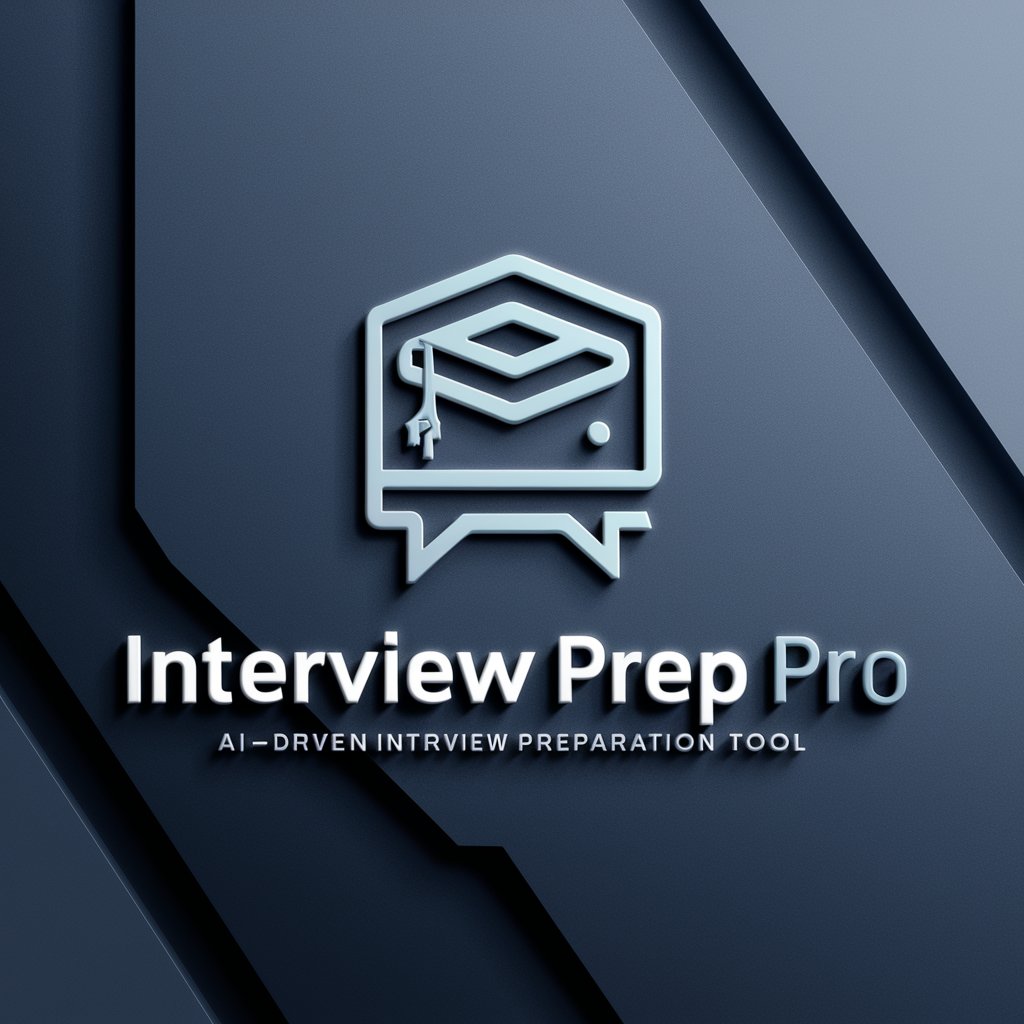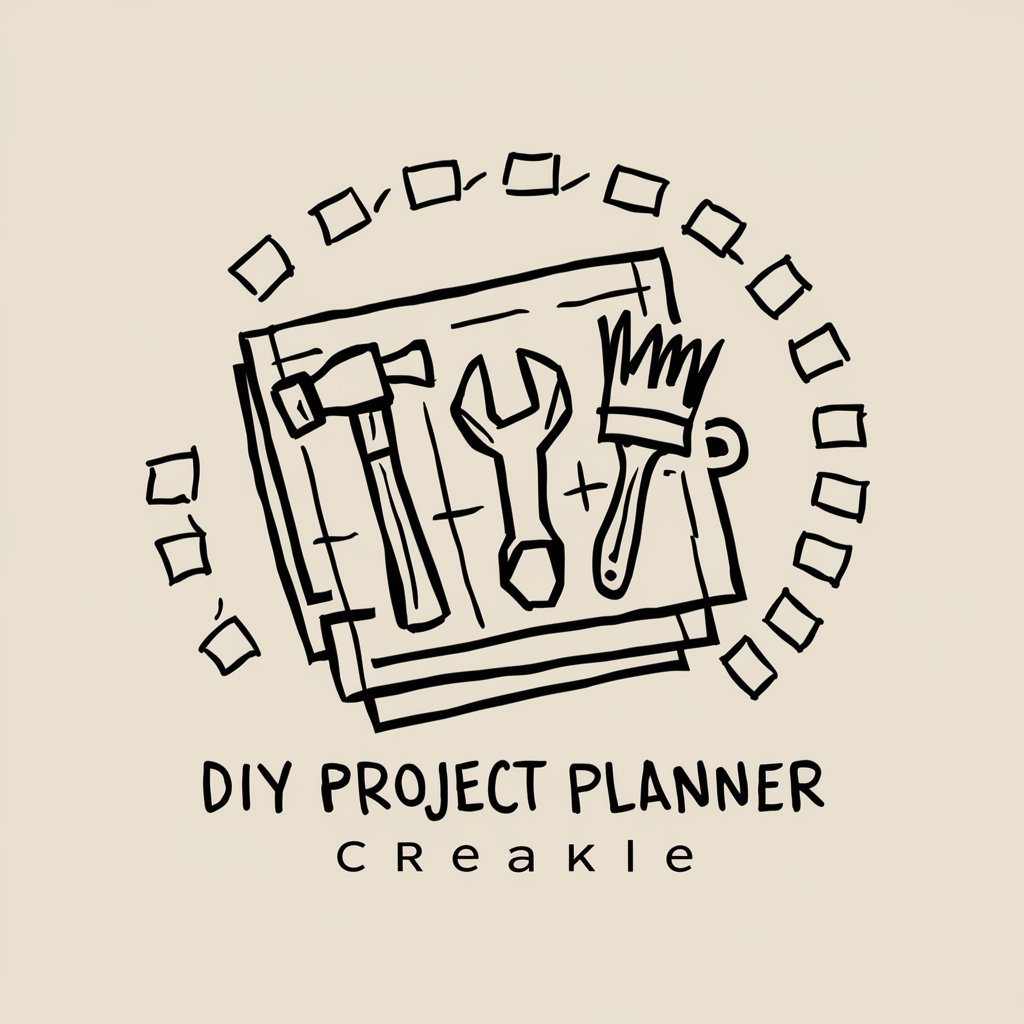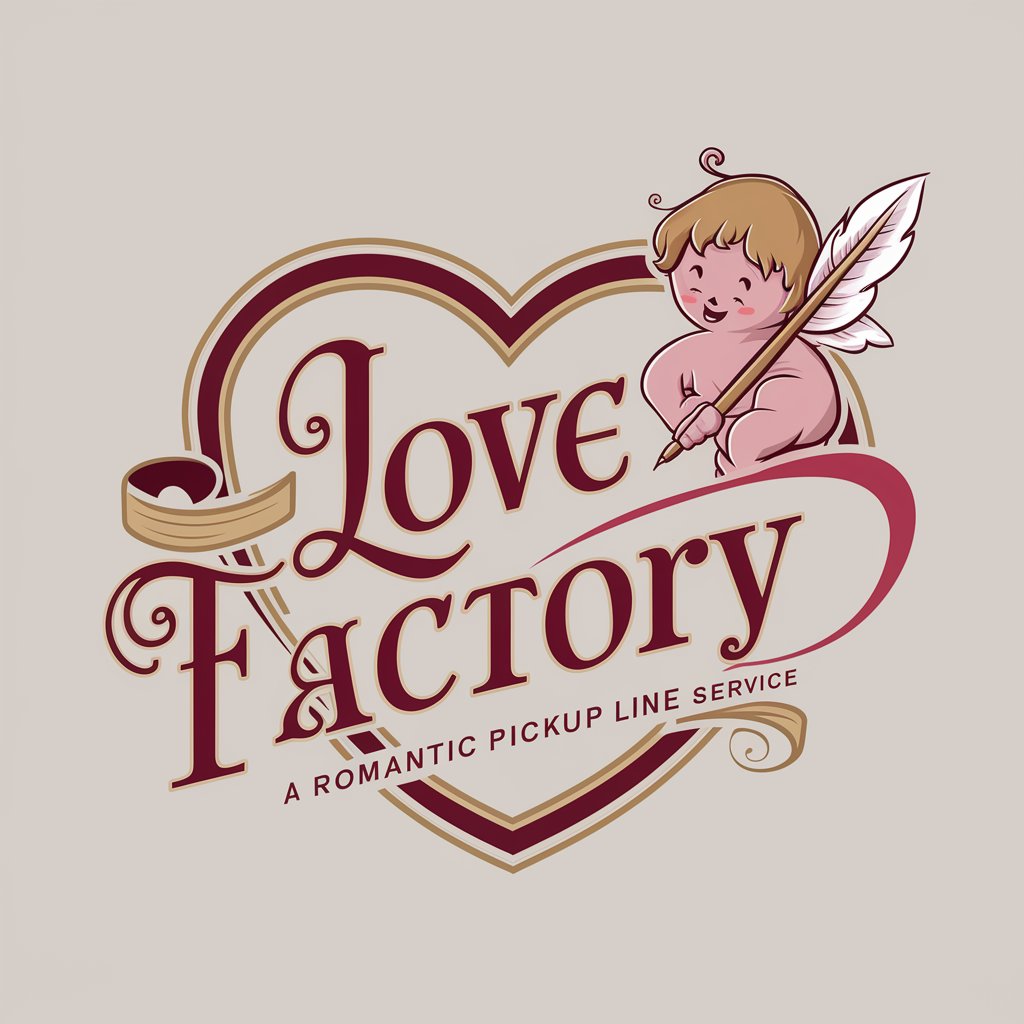Wine Making - Insights on Winemaking

Welcome! Let's explore the art of winemaking together.
Empowering Winemaking with AI
Can you explain the different types of grape varieties used in winemaking?
What are the key steps involved in the fermentation process?
How does vineyard management impact the quality of wine?
What are some common techniques for aging wine and their effects on flavor?
Get Embed Code
Introduction to Wine Making GPT
Wine Making GPT is an advanced conversational AI designed to specialize in the art and science of winemaking. Its purpose is to offer users detailed insights into the winemaking process, from the cultivation of grapes to the bottling of wine. This includes understanding grape varieties, vineyard management, fermentation techniques, aging processes, and wine tasting notes. For example, it can elucidate on the differences between making red and white wines, including the specific steps like maceration and the significance of temperature control during fermentation. It can also guide users through the complexities of soil composition and its impact on grape quality, or the nuances of oak aging and how it influences wine flavor profiles. Powered by ChatGPT-4o。

Main Functions of Wine Making GPT
Educational Insights
Example
Explaining the fermentation process, including yeast selection and sugar conversion into alcohol and carbon dioxide.
Scenario
A home winemaker is curious about experimenting with different yeast strains to alter the flavor profile of their wine.
Vineyard Management Advice
Example
Offering strategies for pest control, irrigation techniques, and canopy management to improve grape quality.
Scenario
A vineyard manager in a newly established vineyard seeks advice on sustainable pest management practices to ensure a healthy first harvest.
Wine Tasting Notes Composition
Example
Assisting in the creation of detailed tasting notes, highlighting the wine's aroma, body, flavor, and finish.
Scenario
A sommelier needs to develop comprehensive tasting notes for a wine menu update, focusing on newly acquired boutique wines.
Industry Trends and Innovations
Example
Providing updates on the latest winemaking techniques, equipment innovations, and market trends.
Scenario
A winery owner looking to invest in modern winemaking equipment seeks information on the latest technological advancements in the industry.
Ideal Users of Wine Making Services
Home Winemakers
Individuals exploring winemaking as a hobby or small-scale production. They benefit from detailed process explanations, troubleshooting tips, and personalized advice to refine their winemaking skills.
Vineyard and Winery Professionals
From vineyard managers to winemakers in commercial settings, these professionals can utilize in-depth guidance on advanced viticulture and oenology techniques, market insights, and operational optimizations.
Wine Enthusiasts and Educators
Those passionate about wine who seek deeper understanding of wine production, tasting techniques, and varietal characteristics. Educators can use this information to enrich their curriculum or wine tasting events.
Wine Industry Analysts and Investors
Individuals interested in the business aspect of winemaking, including trends, innovations, and investment opportunities. They gain access to data and analyses that inform strategic decisions.

How to Use Wine Making
Start Your Journey
Initiate your winemaking exploration by visiting a designated platform offering a free trial, no login or premium subscription required.
Identify Your Interest
Determine which aspect of winemaking you're most interested in, whether it's grape selection, fermentation techniques, aging processes, or wine tasting notes.
Engage with the Tool
Utilize the tool's functionalities by inputting your specific queries related to winemaking to receive detailed, tailored information and guidance.
Explore Advanced Features
For a deeper understanding, experiment with advanced features that may offer insights into vineyard management, wine industry trends, and professional winemaking practices.
Apply Your Knowledge
Take the insights and information gathered from the tool to apply to your own winemaking projects or further academic research, enhancing your practical and theoretical knowledge.
Try other advanced and practical GPTs
Note Ninja
Transcribe, Understand, Enhance - With AI

Interview Prep Pro
Ace your interviews with AI-powered prep

Obsidian helper and assistant
Elevate Your Notes with AI Power

Dollhouse Dreamer
Ignite Your Imagination with AI-Powered Dollhouse Design

DIY Planner
Empowering Your Creativity with AI

Jazz Maestro
Explore Jazz, Discover Music

Take Out
Elevate Your Dining, Effortlessly.

Love Factory
Crafting personalized romance with AI

Cyber Sentinel
Empowering Security Insights with AI

Cyber Sentinel
Your AI-powered Cybersecurity Strategist

Cyber Sentinel
Tailored Insights at Your Command

GPTs Searcher
Unlock AI Expertise for Any Query

Frequently Asked Questions About Wine Making
What grape varieties are best for beginner winemakers?
For beginners, grape varieties that are robust, versatile, and widely available like Cabernet Sauvignon, Merlot, and Chardonnay are recommended due to their adaptability to different climates and forgiving nature during the winemaking process.
How does fermentation temperature affect wine quality?
Fermentation temperature plays a critical role in wine quality, affecting the speed of fermentation, flavor development, and stability. Cooler temperatures are typically used for white wines to retain fresh flavors, while warmer temperatures are favored for red wines to extract color and tannins.
What are the key steps in the aging process?
The aging process involves storing the wine under controlled conditions to develop its flavors. Key steps include choosing the right container (oak barrels or stainless steel tanks), monitoring the wine's development, and deciding on the duration of aging based on the desired wine profile.
How can one assess wine tasting notes?
Assessing wine tasting notes involves evaluating the wine's appearance, aroma, body, taste, and aftertaste. This process helps in understanding the wine's complexity, balance, and character, which are influenced by grape variety, fermentation, and aging.
What vineyard management techniques impact wine quality?
Vineyard management techniques such as pruning, canopy management, soil management, and controlled irrigation significantly impact wine quality by influencing the grapes' exposure to sunlight, nutrient uptake, and water stress, leading to optimal ripeness and flavor concentration.
